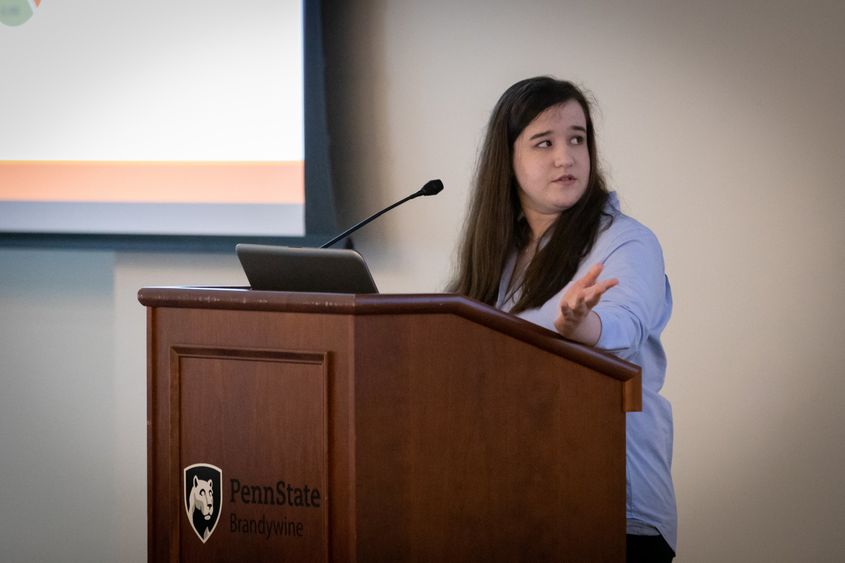
Penn State graduate and Cooper Honors Scholar Laura Gillin presented her research about LGBTQ+ experiences during online gaming to the campus community.
While earning her bachelor's degree in psychology with honors from the Brandywine campus, Penn State graduate Laura Gillin started a research project supervised by Distinguished Professor of Psychology and Women’s, Gender and Sexuality Studies Margaret Signorella. Gillin, who’s also a Cooper Honors Scholar, has continued her work even after graduation.
Gillin’s research study, started in spring 2018, is titled “LGBTQ+ experiences in online gaming communities.” Gillin sought to determine whether LGBTQ+ people witness and experience more discrimination than heterosexual and cisgender people do during online gaming. She explored how frequently comments are made regarding sexual orientation and gender identity during online gaming and whether those comments are positive or negative.
“One of the goals of this research is to show that what you say online does matter,” Gillin explained. “In online forums, many people defend what they say by claiming it’s ‘gamer lingo.’ Even if it’s not a direct attack against someone’s sexuality, insults and threats still hurt and affect real people.”
Gillin collected data for her research through an online survey that she developed with Signorella. Survey participants who provided demographic information were categorized into five distinct groups based on their sexual orientation and gender identity: non-heterosexual men, non-heterosexual women, non-binary people, heterosexual men, and heterosexual women. A total of 256 people completed some or all of the survey.
“I think a lot of people aren’t aware of what gets said during online gaming. Online gaming has an interesting intersection of anonymity and competition, which feed off of each other.”
—Laura Gillin
“A study I looked at found that the majority of the population does play video games, but there haven’t been many studies into the different aspects of online gaming communities—specifically broad-spectrum studies on LGBTQ experiences in online gaming,” Gillin said.
Results from Gillin’s study showed that all five survey groups reported hearing more negative comments about sexual orientation than positive ones. Almost all (89%) survey participants were able to provide an example of something negative that other players said about sexual orientation, whereas only 45% were able to provide a positive example. Also, non-heterosexual women and non-binary people were most likely to make positive comments about sexual orientation, and non-heterosexual men and women were most likely to report hearing positive comments about sexual orientation.
“I think a lot of people aren’t aware of what gets said during online gaming,” Gillin said. “Online gaming has an interesting intersection of anonymity and competition, which feed off of each other.”
Throughout the summer, Gillin has continued to work on her research with Signorella and hopes to submit her work to a peer-reviewed journal for publication.